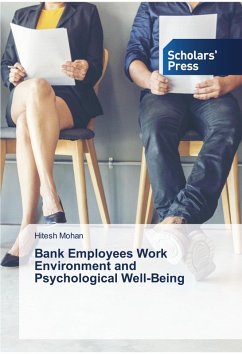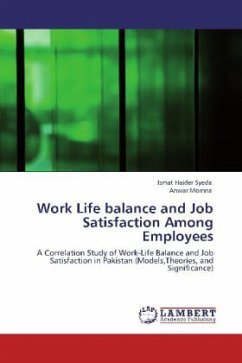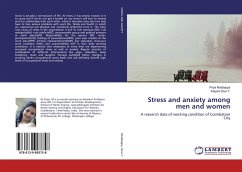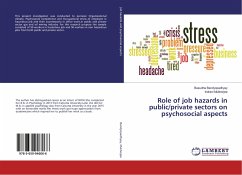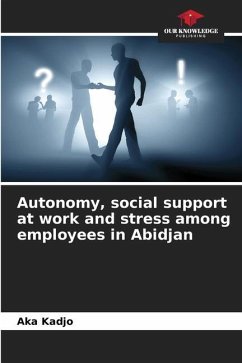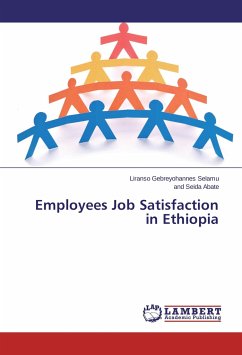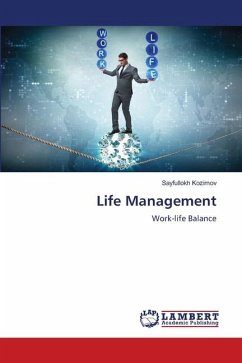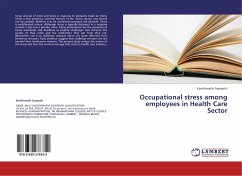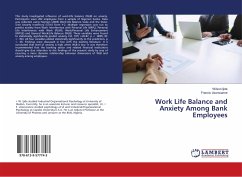
Work Life Balance and Anxiety Among Bank Employees
Versandkostenfrei!
Versandfertig in 6-10 Tagen
24,99 €
inkl. MwSt.

PAYBACK Punkte
12 °P sammeln!
This study investigated influence of work-life balance (WLB) on anxiety. Participants were 202 employees from a sample of Nigerian banks. Data was collected using Hayman (2005) Work-life Balance Scale and the State-Trait Anxiety Inventory (STAI) Form Y-2. Multiple regression was run to predict anxiety from Work Interference with Personal Life (WIPL), Personal Life Interference with Work (PLIW), Work/Personal Life Enhancement (W/PLE) and General Work/Life Balance (WLB). These variables were found to statistically, significantly predict anxiety, F(4, 197) =26.87, p .0005, R2 = .353. All four var...
This study investigated influence of work-life balance (WLB) on anxiety. Participants were 202 employees from a sample of Nigerian banks. Data was collected using Hayman (2005) Work-life Balance Scale and the State-Trait Anxiety Inventory (STAI) Form Y-2. Multiple regression was run to predict anxiety from Work Interference with Personal Life (WIPL), Personal Life Interference with Work (PLIW), Work/Personal Life Enhancement (W/PLE) and General Work/Life Balance (WLB). These variables were found to statistically, significantly predict anxiety, F(4, 197) =26.87, p .0005, R2 = .353. All four variables added statistically significantly to the prediction, p .05. Findings were discussed in line with the existing literature. It is concluded that level of anxiety is high when WLB is low. It was therefore recommended that the banking sector and related financial institutions should give due attention to the findings of the present study by way of ensuring a more dynamic relationship between dimensions of WLB and anxiety among employees.



